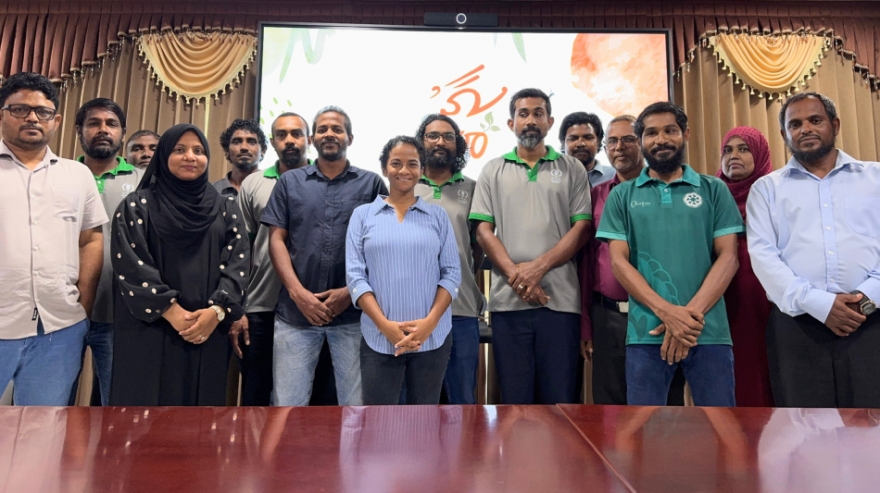
Soneva Namoona has signed an MoU with the island councils of B. Maalhos, B. Dhonfanu, and B. Kihaadhoo to introduce island-level composting systems using the Takakura Method. This marks a significant step in scaling a proven, local solution for sustainable food waste management across the Maldives.
The Takakura Method is a form of household composting that ensures food waste is broken down into soil, without causing any bad smells.
The collaboration between Soneva Namoona and the Islands builds on the successful four-month Takakura composting trial carried out earlier this year in partnership with the N. Kudafari Council. The Kudafari trial showed that a centralized Takakura system is a reliable method for managing food waste in island communities, cutting the amount of food waste reaching the waste management centre by nearly one-third. It also provided detailed insights on staffing, workflow, infrastructure, and operational costs. These strong results form the basis for expanding the model to additional islands.
This new phase continues Soneva Namoona’s work to identify practical, effective waste management solutions. Alongside jungle composting systems using wood chips and leaf waste, the initiative also supports guesthouses and households in adopting the Takakura method.
Home-based composting programmes are already underway in Kihaadhoo, Kendhoo, Kudarikilu, and Dhonfanu. Most recently, the Kaadhu Satheyka Guesthouse Composting Trial at Kamadhoo Inn has shown that even small tourism businesses can meaningfully reduce food waste.
With the signing of the MoU, Maalhos, Kihaadhoo, and Dhonfanu are taking the next step in a partnership built over several years. Each island has worked with Soneva Namoona to strengthen waste management systems, reaching a stage where most inorganic waste streams are already well organised and efficiently managed. They are now ready to integrate dedicated food waste management into their operations. During a recent planning workshop, partners mapped existing resources and identified the support needed to establish fully functional composting systems. Implementation is scheduled to begin in December 2025.
"Our island has been known for running its own composting system for many years, and it is something we take great pride in. This new partnership allows us to keep innovating, adopt more efficient methods, and strengthen our commitment to composting. For us, stopping is never an option — we only improve.” – Abdulla Shujau, President of B. Maalhos Council
“We have climbed the sustainable waste management ladder quickly, even with very limited resources. It has taken commitment, teamwork, and strong community support to get here. We are proud of how far we’ve come. Joining this initiative is an exciting next step, and we are fully committed to making it a success.” – Ahmed Irshad, President of B. Dhonfanu Council
“We have successfully implemented the Namoona waste management model to its highest standards, showing what a Namoona Island can achieve for the country. Most of our inorganic waste streams are already well managed, and food waste is the final piece we need to complete our system. With local tourism due to grow in the island, this project comes at the perfect time to ensure we are ready to handle the additional waste.” – Hussain Shaafiu, President of B. Kihaadhoo Council
Under the MoU, Soneva Namoona will provide technical support, training, and design guidance, while the councils will lead local implementation. Each island will also pilot selected innovations to improve efficiency and system performance.
Please login to Comment